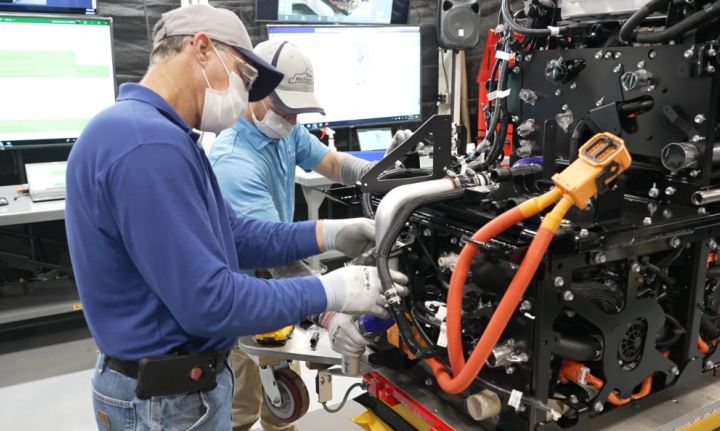
Number one on the periodic table and the universe’s lightest element, hydrogen could play a heavy role in Kentucky’s future endeavors with energy and fuel economy.
During Thursday’s “Team Kentucky” update, Governor Andy Beshear announced the creation of the Regional Hydrogen Hub Workgroup for the Commonwealth, which will both explore and develop feasible projects for the element’s production, transportation, delivery and use not just in Kentucky — but in the country.
Beshear noted that Toyota Motors of North America will soon begin its production of hydrogen-powered fuel-cell modules in its Georgetown facility, which will be used in heavy trucks.
These are the kind of futuristic jobs Beshear said his administration wanted to seek in the months ahead.
Perhaps the most enticing fact about hydrogen power is its reliance on coal and natural gas, both of which Kentucky has aplenty.
Chasing hydrogen power might not be a fool’s errand in Kentucky. According to the U.S. Energy Information Administration, the nation’s fifth-largest coal producer still operates nearly 20% of all working mines in the country. Only West Virginia and Pennsylvania have more.
In 2020, nearly 70% of the state’s electricity net generation was coal-fired, and only West Virginia, Wyoming and Missouri rely on more.
And Kentucky has 22 underground natural gas storage sites holding nearly 225 billion cubic feet of gas — or 2% of the nation’s underground storage capacity.
With this energy profile, Kentucky could be a primary location for hydrogen-related jobs. One of the premier paths of producing hydrogen comes from coal, in a process called coal gasification — which uses steam and oxygen to split the molecular bonds of coal and form a gaseous mixture of hydrogen and carbon monoxide.
Once the pollutants are removed, all that remains is hydrogen — which is then refined, stored and distributed.
It’s a clean-energy source that could invigorate both the Eastern and Western Coal Fields of Kentucky, but it does have its drawbacks. It’s extremely expensive to produce, can be difficult to store safely because of its low density, can be highly-explosive in the wrong conditions, is difficult to transport and does often rely on a steady stream of fossil fuels.
But this creates the need for feasibility studies, and Beshear noted that because 65% of the US population lives within 600 miles of Kentucky, it’s all the more reason for the Commonwealth to lead the way.
Kentucky’s Hydrogen Workgroup will have its first meeting at the end of January.





